1. Dennis Eckersley (Baseball)
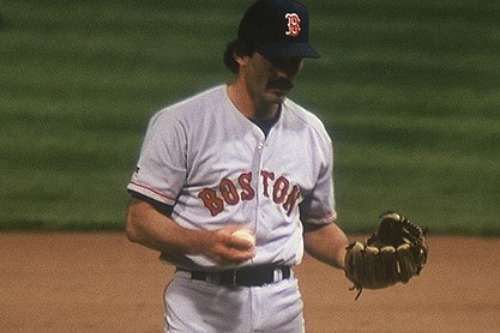
Dennis Eckersley, one of baseball’s most famous closers, first made his mark in the 1970s as a starting pitcher with the Cleveland Indians and the Boston Red Sox, according to the Baseball Hall of Fame. Though he would later become known as a Hall of Fame closer, his early years in the ’70s showed a pitcher who had immense potential. His 1978 season with the Red Sox, where he finished second in Cy Young voting, marked him as one of the top pitchers in the American League. Eckersley had a fiery personality on the mound and was known for his aggressive style.
His versatility is what made Eckersley truly stand out. After starting for much of his early career, he became a dominant closer in the 1980s, helping the Oakland Athletics win the World Series in 1989. While his best years came later, it was his ability to reinvent himself that began in the 1970s that makes him an important figure in the sport. His career bridged two eras of pitching, from starter to closer, leaving a legacy as one of the most effective and adaptable players in baseball history.
2. Doug Williams (Football)
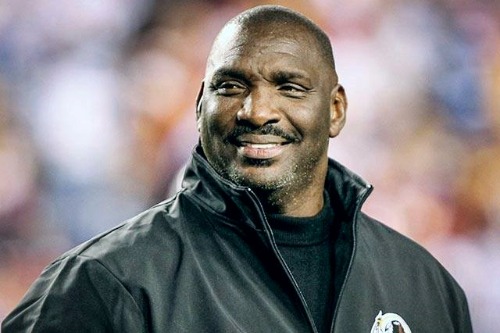
Doug Williams’ impact on the NFL in the 1970s is often overshadowed by his later Super Bowl success, USA Today explains, but his presence in the decade was significant. Williams entered the NFL as a second-round pick by the Tampa Bay Buccaneers in 1978. His rise as the first African American quarterback to win a Super Bowl, which occurred in 1988, was a culmination of his growth starting in the late ’70s. He faced racial adversity but continually proved himself as a strong and intelligent quarterback, breaking barriers on and off the field.
During his time with Tampa Bay, Williams was a powerful arm, leading the team to playoff contention and laying the foundation for a later championship career with the Washington Redskins. His legacy is entwined with his eventual Super Bowl MVP performance, but it was in the ’70s that Williams began to set the tone for Black quarterbacks in the NFL. His early career not only broke down barriers but also helped to change perceptions of what African American quarterbacks could achieve at the highest levels of football.
3. Steve Garvey (Baseball)

Steve Garvey was a mainstay in the Major Leagues throughout the 1970s, particularly with the Los Angeles Dodgers, according to NPR. A reliable first baseman, Garvey was a key figure in the Dodgers’ success during the decade, including winning four Gold Glove awards. His clutch performances helped the team to multiple postseason appearances, and in 1974, Garvey was named the National League MVP after hitting .312 with 111 RBIs. He also played a critical role in the Dodgers’ World Series victory in 1981, though his best years were clearly in the ’70s.
Garvey was well known for his consistency and resilience, managing to play 1,207 consecutive games, a streak that stood as a National League record for years. He earned his spot as one of the most beloved players in the Dodgers’ history, even if he didn’t get the attention of other iconic stars like Hank Aaron or Reggie Jackson. His quiet leadership and ability to come through in big moments made him an instrumental part of his team’s success during a competitive era in baseball.
4. Tedy Bruschi (Football)
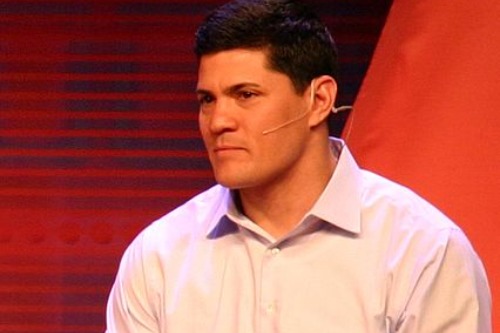
Tedy Bruschi, though best known for his later years with the New England Patriots and his role in their dynasty, was actually part of the team-building era of the late 1970s as a young linebacker with the Arizona Wildcats. Bruschi was never a full-time starter in his rookie years, but by the late 1970s, he helped elevate the Wildcats to national recognition with strong defensive performances. He continued to build on his momentum, ultimately becoming one of the most well-known linebackers in the 1980s and early ’90s, according to The Patriots Hall of Fame.
Although Bruschi’s breakthrough didn’t come until the ’80s and ’90s, his early years in the ’70s laid the groundwork for his future career. His leadership and drive during his Arizona days foreshadowed his professional accomplishments and set the stage for his remarkable NFL career. Bruschi’s story is one of determination, and while he didn’t earn recognition until much later, his foundational years in the late ’70s played an important role in his success.
5. John Riggins (Football)
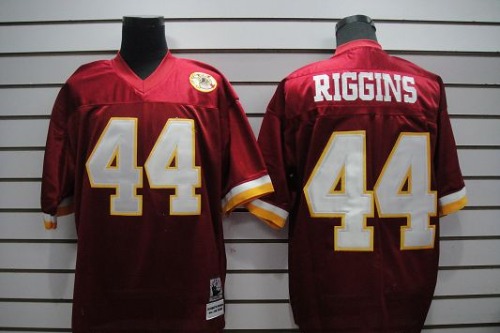
John Riggins’ legacy as one of the most dominant running backs in the NFL became clearer during his time with the Washington Redskins in the late ’70s and early ’80s, although he was drafted in 1971 by the New York Jets. Riggins’ powerful running style, marked by his size and toughness, immediately set him apart in the league. His breakthrough moment came during the 1976 season with the Jets when he rushed for over 1,000 yards. However, it was his move to the Redskins that truly cemented his place in NFL history, especially during his Super Bowl MVP performance in 1983. according to the NFL site.
While Riggins’ most iconic moments came in the ’80s, the 1970s were foundational for him. He spent his early years honing his skills and adapting his running style, preparing himself for the dominant stretch of his career. Riggins became a cultural icon not just for his performances but for his larger-than-life personality. Though overshadowed by other running backs in his era, Riggins’ impact on the game was undeniable.
6. Earl Campbell (Football)
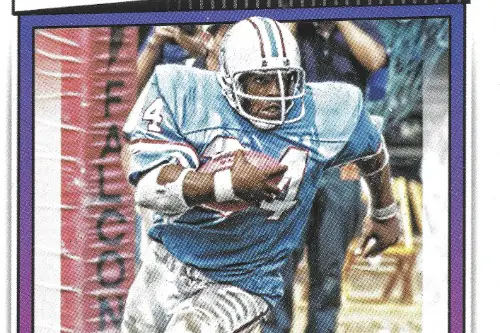
Earl Campbell, “The Tyler Rose,” was one of the most devastating running backs in NFL history, known for his incredible combination of speed and power. Playing for the Houston Oilers in the late ’70s, Campbell quickly became a force to be reckoned with. He won the NFL Offensive Rookie of the Year award in 1978 and proceeded to dominate the league for the next few seasons. His 1,450 rushing yards in 1979 earned him the league MVP, and his hard-nosed running style brought him both admiration and fear from defenders.
Despite facing some setbacks later in his career due to injuries, Campbell’s early years in the 1970s and his 1980s dominance reshaped the way running backs played the position. His physicality and ability to break tackles made him one of the most feared players on the field. Campbell’s influence on the NFL is still seen today in the power-running game, and he remains one of the most memorable players from that era. Even though his career was short, Campbell’s impact on the sport was seismic.
7. Dwight Clark (Football)

Dwight Clark is best remembered for “The Catch,” one of the most iconic plays in NFL history, but his career was much more than that one moment. Playing for the San Francisco 49ers in the late ’70s, Clark was a steady, reliable wide receiver who quickly became one of quarterback Joe Montana’s favorite targets. In 1979, his breakout season helped the 49ers ascend from a team on the rise to one of the dominant franchises of the 1980s. Clark had several productive seasons in the late ’70s, which helped him cement his spot in the 49ers’ future success.
His career peaked with that unforgettable catch in the 1981 NFC Championship game, but it was his steady growth in the ’70s that set the stage for his later success. Clark’s ability to make difficult catches and his rapport with Montana helped form the backbone of the 49ers’ offense during their dynasty years. Though overshadowed by other stars like Jerry Rice, Clark’s place in NFL history remains secured because of the foundations he laid in the ’70s.
8. Reggie Jackson (Baseball)
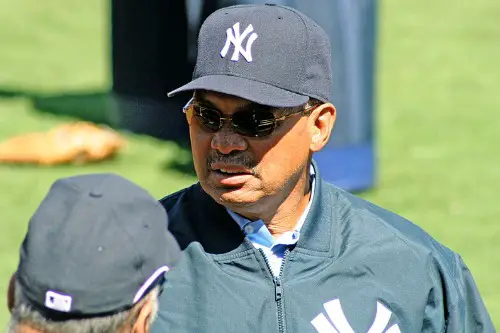
Reggie Jackson, known as “Mr. October,” made his biggest impact in the 1970s with his postseason heroics for the Oakland Athletics and New York Yankees. He became a household name with his performance in the 1977 World Series, where he hit three home runs in a single game to lead the Yankees to victory. Jackson was not just a postseason performer, though—his ability to hit for power during the regular season made him one of the most feared hitters of the era. In 1973, he won the AL MVP award, and by the end of the decade, he had firmly established himself as one of the game’s greats.
What set Jackson apart was his swagger, confidence, and his ability to perform under pressure. His larger-than-life personality made him one of the most charismatic players of the 1970s, and his influence helped bring the Yankees back to prominence. Though much of his fame came in the later years of his career, the 1970s were pivotal for Jackson as he became a legend, particularly in the postseason. His impact on the game remains significant, and he helped define an era of baseball as both an elite athlete and a media sensation.
9. Alan Page (Football)
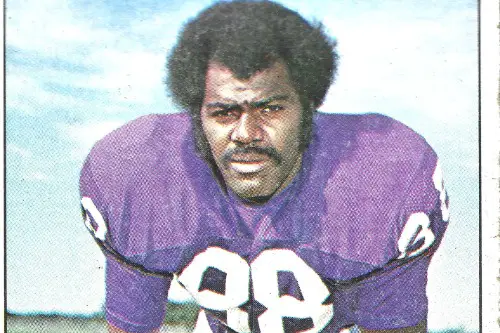
Alan Page is one of the greatest defensive players in NFL history, yet his impact in the 1970s often gets overshadowed by more famous names. Page was a dominant force on the Minnesota Vikings’ “Purple People Eaters” defense, which was one of the most fearsome defensive units of the era. As a defensive tackle, Page was known for his ability to disrupt offenses, generating pressure on quarterbacks and stopping the run. In 1971, he became the first defensive player to win the NFL MVP award, a rare and prestigious honor that usually goes to offensive players.
What set Page apart was his combination of speed, power, and intelligence on the field. He played a major role in the Vikings’ success throughout the ’70s, including helping them reach four Super Bowls, though they ultimately lost all of them. Page was also a key part of one of the NFL’s top defenses, earning nine Pro Bowl selections and being named First-Team All-Pro six times. Off the field, Page was an advocate for social justice and even went on to serve as a justice on the Minnesota Supreme Court later in his career. His influence on the game during the ’70s helped define defensive play in the modern NFL, making him one of the most significant figures in football history.
10. Dick Butkus (Football)
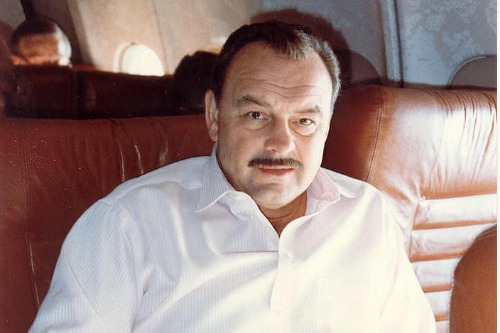
Dick Butkus was one of the most fearsome linebackers ever to play the game of football, and his dominance in the 1970s helped define the Chicago Bears’ defense for years. Butkus was known for his ferocious tackling, incredible strength, and relentless pursuit of the ball carrier. His presence on the field made life miserable for opposing quarterbacks and running backs alike. Though his career was marred by injuries, Butkus was a force in the ’70s, earning multiple Pro Bowl selections and All-Pro honors.
What set Butkus apart was his intensity and his ability to make game-changing plays. His aggressive approach to defense led to a shift in how linebackers were perceived in the NFL. Butkus may not have won a championship, but he became the model for the modern linebacker, influencing players long after his career ended. His toughness and leadership on the field are still talked about today.
11. Jack Lambert (Football)
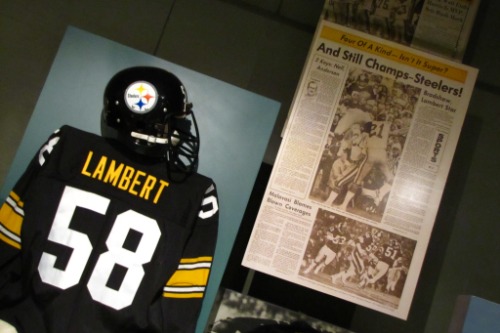
Jack Lambert was the heart and soul of the Pittsburgh Steelers’ dominant defense during the 1970s, a period that saw the team win four Super Bowls. Lambert’s play at linebacker redefined what it meant to be a defensive leader. Known for his fierce intensity and aggressive tackling, Lambert quickly became one of the most feared linebackers in the NFL. His ability to read offenses and make game-changing plays helped the Steelers establish a defense that was the cornerstone of their dynasty.
Lambert’s contributions to the Steelers’ success were undeniable. He was a vital part of their “Steel Curtain” defense, earning nine Pro Bowl selections and being named First-Team All-Pro six times during his career. In 1976, Lambert was named the NFL Defensive Player of the Year, cementing his reputation as one of the league’s premier defenders. Despite not being the flashiest player, Lambert’s relentless work ethic and no-nonsense attitude on the field earned him the respect of teammates and opponents alike. His leadership was a key element in the Steelers’ ability to dominate throughout the ’70s, making him a crucial figure in NFL history.
12. Thurman Munson (Baseball)

Thurman Munson is one of the most underrated baseball players of the 1970s, though his impact on the New York Yankees cannot be overstated. As the team’s catcher, Munson was known for his defensive prowess and leadership behind the plate, but he was also an exceptional hitter, winning the American League Rookie of the Year award in 1970 and the AL MVP in 1976. Munson’s toughness and fierce dedication to his team helped the Yankees stay competitive throughout the decade, especially as they transitioned into a championship team in the 1970s.
Munson’s legacy is forever linked to his tragic and untimely death in a plane crash in 1979, which robbed baseball fans of what could have been even more successful years for him. In his short career, Munson was a six-time All-Star and a key part of the Yankees’ 1977 and 1978 World Series championships. His contributions during the ’70s were vital to the Yankees’ success, and even though his career was cut short, Munson’s leadership and impact on the field left a lasting mark on the franchise. His story is one of what might have been, but what he accomplished in such a short time made him a legend of the ’70s era.


